Health workers
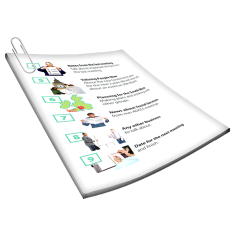
This information is about the people and services that can support the mental health of people with intellectual disability.
It has information on

- Types of health workers

- How to start to find health workers near you

There is a lot of information.
Some words can be hard to understand.
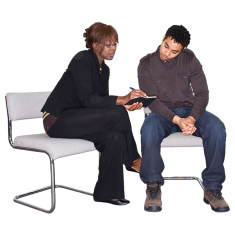
You can ask someone to read this information with you.

There are many health workers who can help you with your mental health.

Mental health is about
- How you think
- How you feel

If you need help to find a health worker you can ask someone you trust.
There are many people you might trust.
For more information about who you might trust go to
https://idmhconnect.health/someone-trust
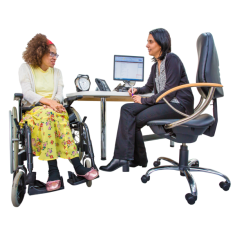
GP
A GP is the doctor you see when
- You are sick
- You need a health check
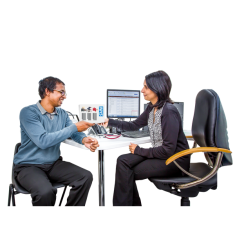
A GP is usually the best person to communicate with if you have concerns about your mental health.
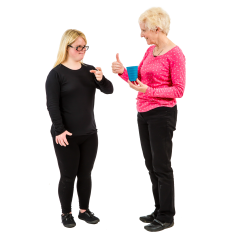
To communicate is how you understand and share your feelings or information.

A GP can
- Give you information about mental health
- Suggest a mental health worker who is right for you
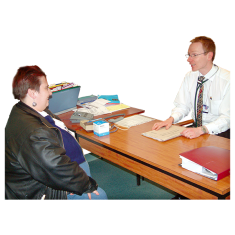
Mental health workers are people who work to help you with your mental health.

To find out more about GPs and what they do, go to

To find a GP near you
- Ask someone you trust
- Ask at a local chemist for their suggestion
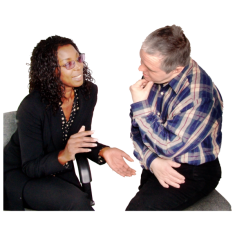
Psychiatrist
A psychiatrist is a doctor who helps you with your mental health using talking and medicine.

Medicine is sometimes called medication or drugs.
Medicine can be in
- A tablet
- A pill
- A drink
- An injection
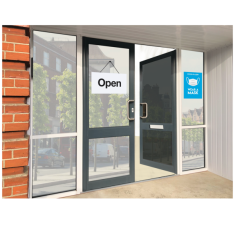
You may see a psychiatrist in
- Private practice
- A community mental health centre
Private practice means the psychiatrist works for themselves.
A community mental health centre has services to help you stay well in the community.

- An emergency department
Emergency departments are usually in hospitals.
They are sometimes called EDs.

- Hospital
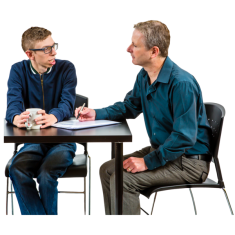
A psychiatrist can also
- Do assessments
An assessment is when a mental health worker asks you questions about you and your health.
They use this information to work out the best way to help you.

- Suggest medication that will help you
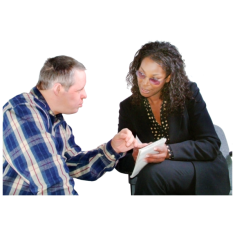
- Provide therapies
Therapies are activities your mental health workers use to support your mental health.

To find out more about psychiatrists and what they do go to
https://www.healthdirect.gov.au/
psychiatrists-and-psychologists

To find a psychiatrist
- Communicate with your GP

You need a referral from a doctor to see a psychiatrist.
A referral is when a doctor suggests you see a health worker who can help you.

Psychologist
A psychologist helps you with your mental health by talking with you.
Psychologists help you find things you can do to feel better.
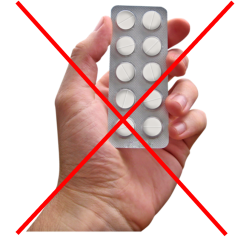
Psychologists do not give you medication.
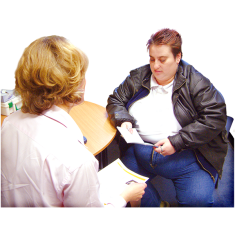
There are different types of psychologists.
For example clinical psychologists have specialist training in helping you with mental health problems.
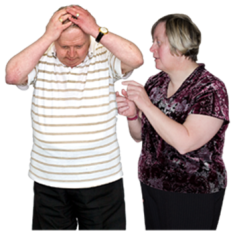
A mental health problem is when your feelings start to worry you.

To find out more about psychologists and what they do, go to
https://www.healthdirect.gov.au/
psychiatrists-and-psychologists

To find a psychologist near you
- Communicate with your GP
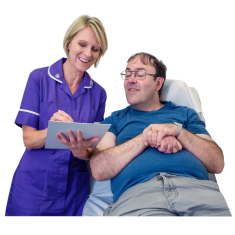
Mental health nurse
A mental health nurse is a nurse who focuses on helping people with mental health problems.

Mental health nurses usually work as part of a team of health workers.
For some people a mental health nurse will be the main person they communicate with in the health system.

A mental health nurse can
- Check on how a persons mental health is

- Provide some therapies

- Help people take their medications

To find out more about mental health nurses and what they do, go to https://www.healthdirect.gov.au/
mental-health-nurses

You can communicate with your GP or other mental health workers about mental health nurses.
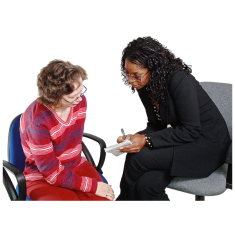
Social worker
A social worker is a mental health worker who helps you find the support you need to stay well.
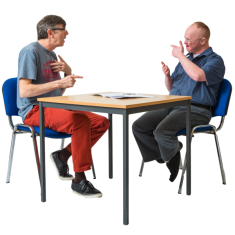
A social worker can provide
- Counselling therapy
Counselling therapy is when you chat with mental health workers about
- Issues in your life
- Ways you can fix these issues

- Information on services that can support your mental health
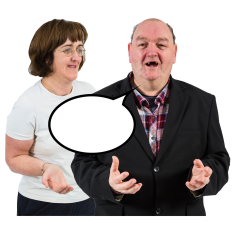
- Advocacy
Advocacy is having your voice heard so your rights and needs are met.
You can have needs in many areas of your life.
Rights are rules about how everybody should be treated fairly.
A right is something everyone has.
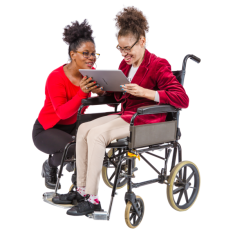
- Help to get support from other services

Other services may be
- Emergency accommodation
Emergency accommodation is for people who have nowhere to live and need somewhere to stay.

- Support with money

- Health services
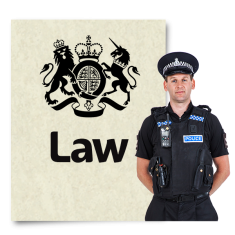
- Legal services
Legal services support you with things to do with the law.

To find out more about social workers and what they do, go to
https://www.healthdirect.gov.au/
social-workers

To find a social worker go to https://www.aasw.asn.au/find-a-social-worker/search/
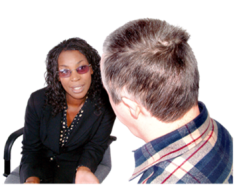
Counsellor
A counsellor is a health worker.
You can communicate with them about problems in your life.
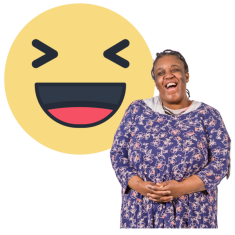
A counsellor can support you to
- Find ways to feel better
- Cope with difficulties
Coping describes your ability to handle hard things or times.

To cope means you can deal with difficult things.

To find out more about counsellors and what they do, go to https://www.healthdirect.gov.au/
counsellors-and-counselling

To find a counsellor near you
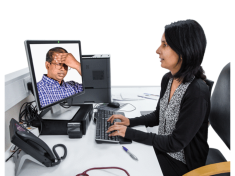
SANE has a new Guided Service.
This service gives free online and telehealth services and support to people
- 18 years or older
- With complex mental health needs
Support is available for people with intellectual disability or autism.
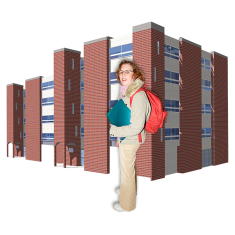
To find a counsellor you might also ask someone at your university or TAFE if you are studying.
TAFE is somewhere you can study and learn skills.
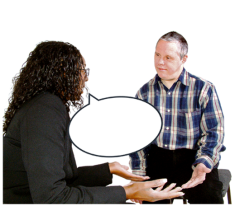
Psychotherapist
A psychotherapist helps with mental health by using talking therapies to help you learn ways to cope with stressful things in your life.
A psychotherapist is often a
- Psychologist
- Psychiatrist
- Counsellor

A talking therapy is when you communicate with a mental health worker to learn new ways to cope with how you think or feel.
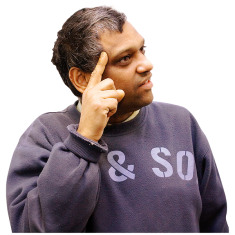
A psychotherapist can support you to
- Change your thinking
- Improve your coping skills

To find out more about psychotherapists and what they do go to https://www.healthdirect.gov.au/
psychotherapy

To find a psychotherapist near you
- Communicate with your GP

Occupational therapist
Occupational therapists support people to take part in daily activities and support them to learn new skills.
Occupational therapists are sometimes called an OT.
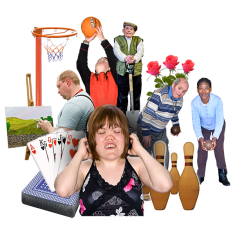
An occupational therapist can
- Find your strengths and difficulties
- Support you to take part in everyday life

To find out more about occupational therapists and what they do

To find an occupational therapist near you

Peer worker
A peer worker is someone who has a lived experience of mental health problems, disability or both.
Peer workers use their own life experiences to help others.

Peer workers can support people individually or in groups.
Peer workers can work in
- Hospital teams
- The community

To find out more about peer workers and what they do

To find a peer worker near you
- Ask your mental health workers if there are peer groups you could be a part of
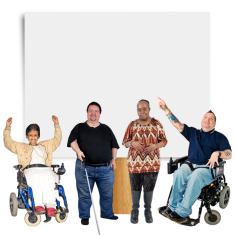
- Ask if local disability support services and mental health groups offer peer support
If you are an NDIS participant you can ask your Support Coordinator.
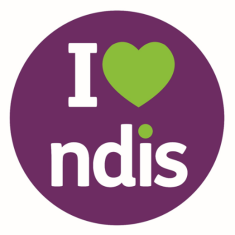
NDIS is short for National Disability Insurance Scheme.
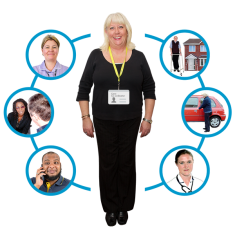
A support coordinator is a person who helps plan and organise
- Your care
- Other services you get

To find a peer worker near you you might also go to https://www.sane.org/peer-support/connect-with-a-peer-worker
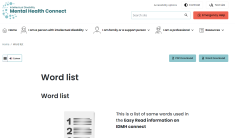
There are some tricky words on this Easy Read page.
For more information about these words go to